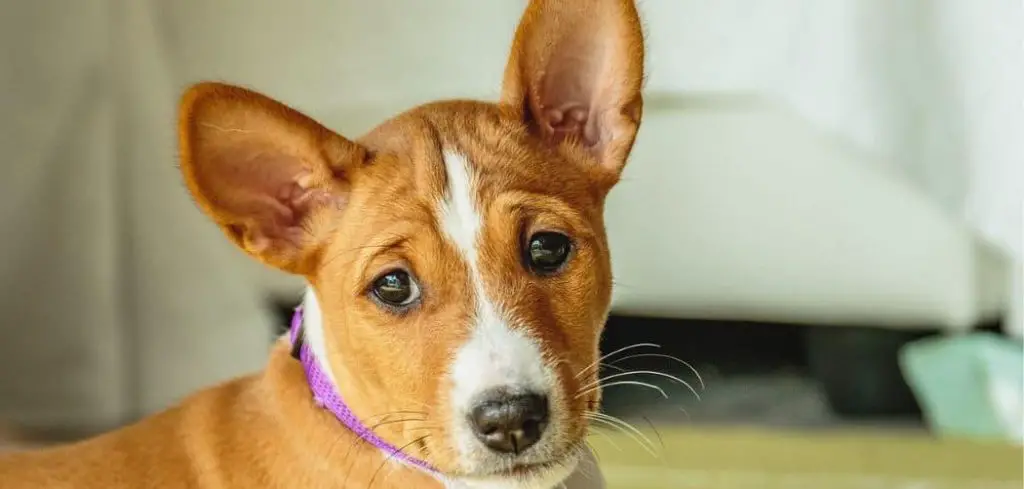When your dog is panting heavily and showing signs of abdominal discomfort, it can be a cause for serious concern.
Panting can indicate stress, pain, or difficulty regulating body temperature, while bowel obstruction is a potentially life-threatening condition that requires prompt attention.
We outline the common reasons why dog panting and bowel obstruction happens, what you can do at home, and when to seek veterinary help.
Dog Panting and Bowel Obstruction — Why It Happens
Dog panting combined with a bowel obstruction is usually a sign of severe internal discomfort or distress. Dogs may pant due to abdominal pain, nausea, or internal pressure caused by a blockage. Obstructions can result from swallowing foreign objects, tumors, severe constipation, or twisting of the intestines.
In many cases, the panting is the dog’s way of coping with pain and anxiety caused by the obstruction.

Dog Panting and Bowel Obstruction: Common Causes
Foreign Object Ingestion
When a dog swallows a toy, bone fragment, piece of clothing, or other non-food object, it can become lodged in the intestines or stomach.
The blockage prevents normal digestion and causes painful bloating and nausea.
Owners may notice vomiting, restlessness, panting, and a reluctance to eat. If untreated, foreign object ingestion can lead to tissue death in the intestines, sepsis, and death.
Read more: Dog panting excessively (Here’s why)
Intestinal Tumors
Growths within the digestive tract can partially or completely block the passage of food and waste. This causes intense discomfort and forces the body to work harder to push contents through.
Panting often occurs alongside abdominal swelling, weight loss, or bloody stools. Tumors can be benign or malignant, but in both cases, they require prompt veterinary diagnosis.
Severe Constipation
If stool becomes too hard or dry, it can form a solid mass in the colon that is difficult to pass. This can happen in older dogs, dehydrated dogs, or those with underlying medical issues.
Constipation-related obstruction causes straining, lethargy, and panting from pain. Left untreated, the colon can become dangerously distended.
Intussusception
This is a condition where one segment of the intestine slides into another, creating a blockage. It can occur due to inflammation, parasites, or previous digestive problems.
Dogs with intussusception often have sudden vomiting, diarrhea with blood, abdominal pain, and persistent panting. This condition is a surgical emergency.
Gastric Dilatation-Volvulus (GDV)
Although GDV is primarily a stomach issue, its effects can lead to bowel obstruction symptoms. The stomach twists, trapping gas and food, and may compress nearby intestines.
Dogs will pant heavily, appear restless, drool excessively, and have a distended abdomen. This condition is rapidly fatal without immediate intervention.
What to Do If Your Dog Is Panting and Has a Bowel Obstruction
If you suspect a bowel obstruction, do not wait to see if symptoms improve. Withhold food and water until a veterinarian has examined your dog, as ingestion can worsen the blockage.
Keep your dog calm and restrict movement to reduce the risk of intestinal damage. Transport them to the vet promptly, as most obstructions require imaging and often surgery.
Do not attempt to treat the obstruction at home with laxatives or induced vomiting. These can worsen the situation, especially if the blockage is caused by a sharp object or twist in the intestines.
Providing gentle reassurance and minimizing stress can help keep your dog more comfortable until they receive professional care.
When to Call or Visit Your Vet
Panting with suspected bowel obstruction is always an emergency. Contact your vet immediately if your dog shows:
Persistent vomiting or dry heaving.
Swollen or tight abdomen.
Lethargy or collapse.
Inability to pass stool or gas.
Signs of severe pain, such as whining, trembling, or aggression when touched.
These symptoms often indicate that the obstruction is advanced or causing life-threatening complications.
Read more: Dog Panting and Licking Bottom (When to worry)
Key Takeaway
Panting with a bowel obstruction is a veterinary emergency that should never be ignored. Dogs rely on quick, decisive action from their owners in these moments.
If your dog is showing signs of both panting and digestive blockage, seek immediate veterinary care. Prompt diagnosis and treatment can mean the difference between a full recovery and a life-threatening crisis.
